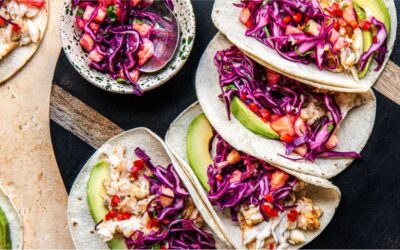Gut inflammation is at the root of many chronic health conditions, from digestive discomfort to metabolic disorders. But did you know that 38% of the world’s population now has fatty liver disease? Once considered a rare condition, fatty liver is now a global epidemic, and it plays a significant role in gut health.
Understanding how fatty liver impacts digestion, the gut microbiome, and inflammation is essential for improving overall health. The good news? With the right dietary and lifestyle changes, you can reduce gut inflammation, support liver function, and optimise your microbiome.
Why Fatty Liver Disease Matters for Gut Health
Fatty liver disease is commonly linked to obesity, metabolic syndrome, and type 2 diabetes, but its impact on digestion and the gut microbiome is often overlooked. Here’s why it’s important:
- Silent but Dangerous: Fatty liver often develops without symptoms but can progress to cirrhosis, liver cancer, and severe metabolic dysfunction if left unchecked.
- Gut-Liver Connection: The liver plays a crucial role in detoxification, digestion, and metabolism—when compromised, it can lead to systemic inflammation.
- Metabolic Impact: Fatty liver is tightly linked to insulin resistance and cardiovascular disease, making gut-friendly dietary choices even more important.
How Fatty Liver Affects Your Gut Health
1. Increased Intestinal Permeability (Leaky Gut Syndrome)
A damaged liver can contribute to increased intestinal permeability, often called leaky gut syndrome. This allows toxins, bacteria, and inflammatory compounds to escape from the gut into the bloodstream, triggering widespread inflammation.
2. Gut Microbiome Imbalances
Research shows that fatty liver alters gut bacteria, leading to:
- An overgrowth of harmful bacteria, which disrupts digestion and increases inflammation.
- A reduction in beneficial bacteria, which are essential for nutrient absorption and immune support.
- An increase in gut-related symptoms like bloating, gas, and food sensitivities.
3. Chronic Inflammation & Digestive Issues
A disrupted gut-liver axis fuels chronic inflammation, worsening IBS, bloating, and food intolerances. It also reduces the body’s ability to process toxins and absorb nutrients properly, leading to fatigue, skin issues, and hormonal imbalances.
What Role Does Diet Play?
The good news is that fatty liver and gut inflammation are largely preventable and reversible with targeted dietary choices. Here’s what to eat (and what to avoid) for better gut and liver health.
❌ Foods That Harm the Gut and Liver
- Ultra-processed foods – High in refined sugars, trans fats, and preservatives that feed harmful gut bacteria and contribute to liver fat accumulation.
- Excess fructose – Found in sugary drinks, processed snacks, and high-fructose corn syrup, fructose is directly processed by the liver and can accelerate fatty liver progression.
- Alcohol – Even moderate alcohol consumption damages the liver, disrupts gut bacteria, and increases inflammation.
✅ Foods That Support Liver and Gut Health
Prebiotic & Fibre-Rich Foods 🌿
Garlic, onions, leeks, bananas, and whole grains
Feed beneficial gut bacteria and improve digestion.
Probiotic-Rich Foods 🥒
Kefir, sauerkraut, kimchi, miso, and fermented vegetables
Help restore gut balance and support immune function.
Healthy Fats 🥑
Olive oil, avocados, nuts, and seeds
Reduce inflammation and improve liver function.
Antioxidant-Packed Foods 🍓
Berries, leafy greens, turmeric, and green tea
Combat oxidative stress in both the gut and liver.
Take Action for Your Gut and Liver Health Today!
Fatty liver is not just a liver problem—it’s a whole-body issue, deeply connected to gut health, digestion, and metabolism. If you’re struggling with bloating, food intolerances, or metabolic concerns, it may be time to take a closer look at your gut-liver connection.
Want expert guidance on how to optimise your diet and support your gut health? Book your Discovery Call Today to start your journey toward better digestive and metabolic health.




